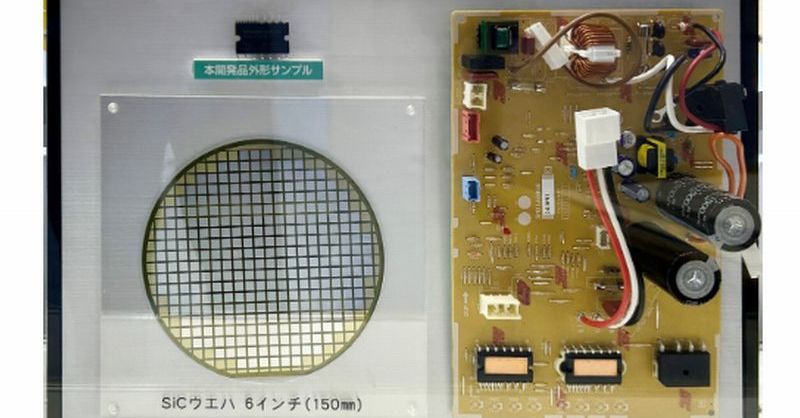Power Consumption Drop: SiC-Based IPMs Revolutionize Air Conditioner Efficiency
Air conditioners are essential for comfort, but their energy consumption is a significant concern. This is especially true in a world increasingly focused on reducing carbon emissions and lowering energy bills. Exciting news is emerging from the world of power electronics: Silicon Carbide (SiC)-based Intelligent Power Modules (IPMs) are poised to dramatically reduce the power consumption of air conditioners, leading to significant environmental and economic benefits.
What are SiC-Based IPMs and How Do They Work?
Traditional air conditioners rely on Insulated Gate Bipolar Transistors (IGBTs) for power conversion. While functional, IGBTs suffer from higher switching losses compared to SiC-based devices. This difference is crucial. SiC-based IPMs boast superior switching speeds and lower on-resistance, resulting in significantly reduced energy losses during operation. This translates directly into lower power consumption.
Here's a breakdown of the key advantages:
- Higher Switching Frequency: SiC allows for much higher switching frequencies than IGBTs, leading to smaller and more efficient power conversion stages.
- Lower Conduction Losses: The lower on-resistance of SiC reduces energy wasted as heat during operation.
- Improved Efficiency: The combined effect of higher switching frequency and lower conduction losses results in a considerable improvement in overall system efficiency.
- Reduced Size and Weight: The efficiency gains often allow for the use of smaller and lighter components, benefiting both manufacturers and consumers.
The Impact on Air Conditioner Efficiency
The implications of adopting SiC-based IPMs in air conditioners are substantial. We're talking about:
- Lower Energy Bills: Reduced power consumption directly translates to lower electricity costs for consumers.
- Reduced Carbon Footprint: Lower energy consumption means less reliance on fossil fuels, contributing to a smaller carbon footprint.
- Enhanced Reliability: SiC devices often exhibit greater robustness and reliability, leading to longer product lifespans.
- Improved Cooling Performance: In some cases, the increased efficiency can even lead to improved cooling performance.
Market Adoption and Future Trends
Several major air conditioner manufacturers are already exploring and incorporating SiC-based IPMs into their products. This marks a significant shift in the industry, signifying a strong belief in the technology's potential. We expect to see wider adoption in the coming years, driven by:
- Increasing Energy Regulations: Governments worldwide are implementing stricter energy efficiency standards, pushing manufacturers to adopt more efficient technologies.
- Growing Environmental Awareness: Consumers are becoming increasingly conscious of their environmental impact and are more likely to choose energy-efficient appliances.
- Falling Costs of SiC Devices: As production scales up, the cost of SiC-based IPMs is gradually decreasing, making them more accessible to a wider range of manufacturers.
Conclusion: A Cooler, Greener Future
The integration of SiC-based IPMs in air conditioners represents a significant leap forward in energy efficiency. This technology holds the key to a cooler and greener future, offering substantial benefits to both consumers and the environment. As adoption increases, we can expect to see a noticeable reduction in energy consumption and a positive impact on global sustainability efforts. Stay tuned for further developments in this exciting field!
Keywords: SiC, Silicon Carbide, IPM, Intelligent Power Module, Air Conditioner, Energy Efficiency, Power Consumption, Sustainability, Green Technology, Energy Savings, Cooling Efficiency, Power Electronics
Related Articles: (Internal links to relevant articles on your website, if applicable)
External Links: (Links to reputable sources supporting the information presented)
- [Link to a reputable source on SiC technology]
- [Link to a reputable source on air conditioner energy consumption]
